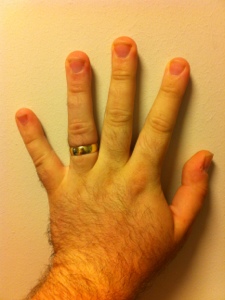 A few days ago, my Bible Blog experienced its busiest day, page view stats peaking dramatically and visitors from all over the world flocking to read my words of wisdom. That little voice that echoes in the mind of every blogger started to take over – look at that! Finally people appreciate my genius! Take that, all the people who laughed at me in high school!
A few days ago, my Bible Blog experienced its busiest day, page view stats peaking dramatically and visitors from all over the world flocking to read my words of wisdom. That little voice that echoes in the mind of every blogger started to take over – look at that! Finally people appreciate my genius! Take that, all the people who laughed at me in high school!
Okay, I confess – that’s pride. It may also be SEO hubris, as a closer look at my statistics told me that the majority of visitors to my blog that day were from the Philippines; in fact, looking at the trends, it seems that the Philippines is currently the third largest source of traffic to my blog, after the UK and USA.
If I can take this at face value, it’s awesome. My blog is big in the Philippines. This is strangely cool – getting traffic from the UK or America is one thing, but the idea that a bunch of netizens in Manila are sitting at their computers reading my musings on the Bible and current affairs and Batman reminds me of just how global the internet is. We self-select and curate the content we read, and I guess that often reflects our own culture, but to get the most out of the net we need to embrace the fact that it’s almost as huge and encompassing and challenging as humanity itself. If my blog is big in the Philippines then I’m humbled that I’m getting traffic from a country and culture about which I know very little. That little peak on my stats page makes me want to learn more.
Maybe this shouldn’t come as a surprise. According to reports, the Philippines is “the Social Media capital of the world”, with a huge proportion of its internet-usiing population engaged with Twitter, Facebook, blogs and the like – apparently this is partly because of good affordability and accessibility. Add to that 90% of the population being Christian and why should I be surprised that a Bible blog attracts a bit of interest from Manila? It’s only my ignorance of the world that makes it appear strange.
Then again, I’m a cynic. I’m not sure I trust my blog statistics all that much. It’s the little things – referrals from link harvesters, ever more advanced spambots that only just fail the Turing Test. A report from Kaspersky Labs recently pointed out that the Philippines was the 7th largest producer of internet spam, responsible for 2.8% of all those unsolicited messages that clog up our inboxes. Am I really big in the Philippines or am I just a victim of some marketing report, like my poor old Livejournal account? And doesn’t that also call into question my stats from the USA, which is actually the biggest producer of spam in the world?
(Incidentally, the meat version of spam became big in the Philippines after American GIs introduced it to the country during World War II. It’s amazing what you learn when you’re writing a post about blog statistics.)
I guess all of this just proves one thing – don’t blog for the statistics, blog because you love it. I hope that I do have readers from across the globe, but that’s pride sneaking in and that’s the moment I end up spending more time worrying about SEO than I do writing. That might be fine for a big business blog, but for me it’s a recipe for disaster and ultimately a distraction. The writing is the main thing.
Still, if you are reading this in Manila… Sweet dreams and have a good night 🙂

